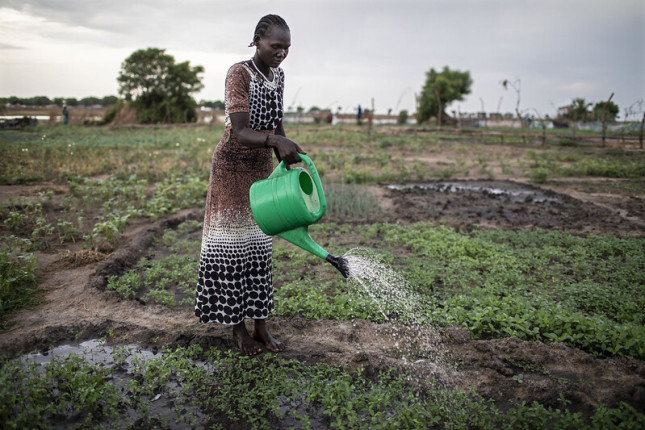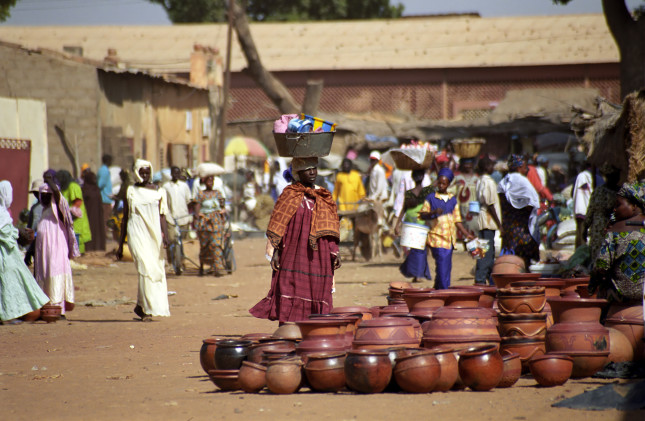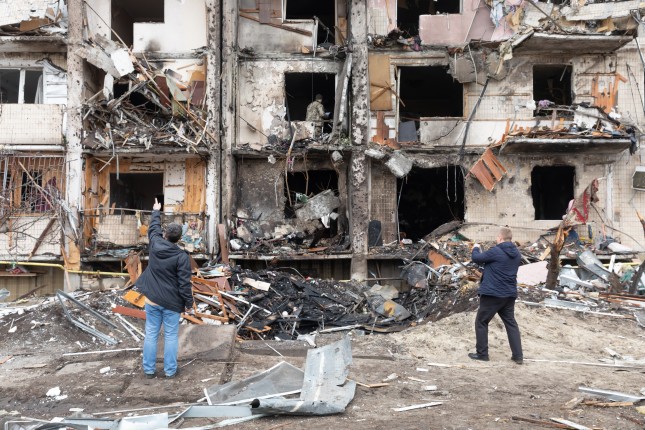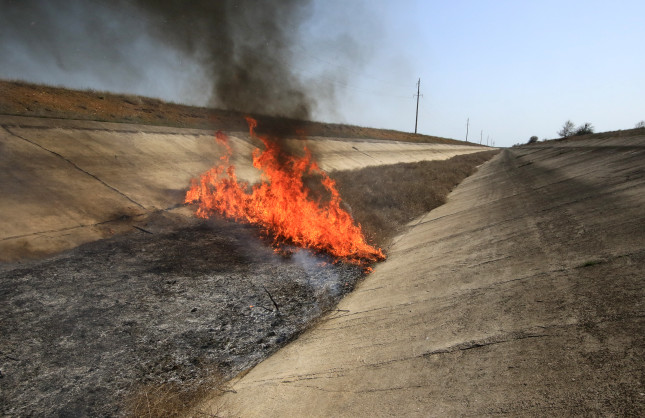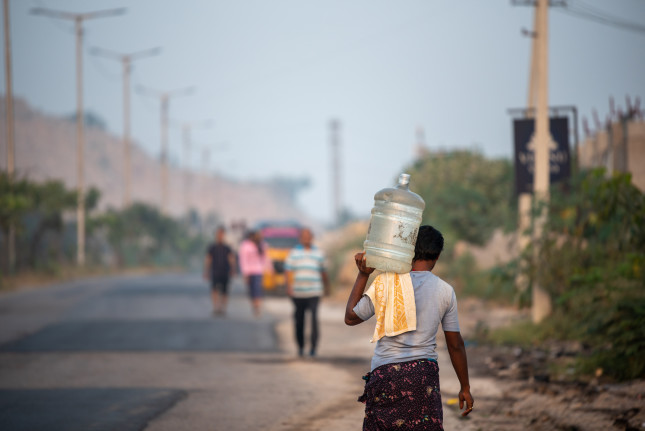-
Ukrainian, Belarusian, and Russian Women and the Anti-War Movement
›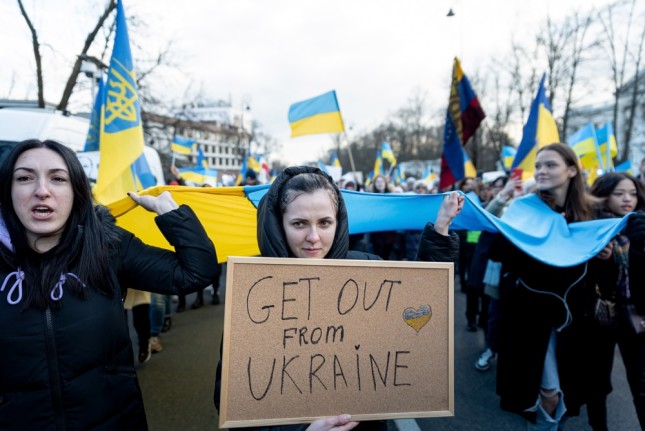
“I want this war to be over. I want all of us to rebuild our societies. We are a force that can do that, and we will do that; we are doing it. But I think we also need to see the bigger picture, that women in the world, and now in our region, are not protected from violence – any form of violence,” said Marina Pisklakova-Parker, Director of Strategic Partnerships at the Every Woman Treaty, during a recent Wilson Center event on Ukrainian, Belarusian, and Russian women’s voices in the anti-war movement.
-
What Next for Climate Security? Implications From IPCC Working Group II 6th Assessment Report
›
The recent Intergovernmental Panel on Climate Change (IPCC) 6th Assessment Report (AR6) from Working Group II (WG2): Impacts, Adaptation and Vulnerability presents the stark implications of climate change. At today’s warming level of 1.1°C, a wide range of impacts to people and nature are attributed to human-caused climate change, including hindering progress on the Sustainable Development Goals (SDGs), damaging infrastructure and economic activities, harming human health and causing excess deaths, and increasing humanitarian needs. Some impacts, like those on sensitive ecosystems, are already irreversible. The more vulnerable are hit harder, due to pre-existing structural conditions that increase their exposure and sensitivity to hazards.
-
#DontMuteDC: Go-Go and Social Justice in the District of Columbia
›
In April 2022, as Washington awoke from its COVID slumber, The Kennedy Center turned to long-time community activist Ron Moten to organize a tribute to the city’s endemic sound, Go-Go. Moten has fought numerous battles against gentrification, displacement, and for social justice. He learned over the years that the loss of distinctive cultures stands at the heart of the dislocations occurring in cities across the nation. This embrace led to the establishment three years ago of a particularly potent urban social action group, #DontMuteDC. That movement’s story offers several important lessons about the power of the arts to mobilize support for social change.
-
Ukrainian Resilience: Ukrainian MP Kira Rudik Discusses Surviving in Kyiv [New Video]
›
When Kira Rudik, Ukrainian Member of Parliament and Leader of the Holos/Voice Party spoke with the Wilson Center’s Maternal Health Initiative and Middle East Program on the one month anniversary of Russia’s invasion of Ukraine, she emphasized the transformative nature of the conflict for every citizen.
“Putin thought he would be fighting our army,” says Rudik. “Instead, he’s fighting every single man and woman in Ukraine, and there’s a huge difference.”
-
‘An ounce of prevention is worth a pound of cure’: U.S. conflict prevention policy in a world of climate change
›The crisis in Ukraine is rightly at the center of U.S. foreign policy attention but, even in the midst of that justified focus, the latest IPCC report unflinchingly reminds us of another emergency: we are running out of time to avoid the most devastating effects of climate change, including the social, economic, environmental and security risks that can actually drive war.
-
The Environmental Dimensions of the Russian Invasion of Ukraine
›March 4, 2022 // By Wilson Center Staff
Today, the Environmental Peacebuilding Association published an open letter, signed by 902 individuals and 156 organizations from more than 75 countries, to express solidarity with the people of Ukraine in the face of Russia’s invasion and shine a light on some of the environmental risks posed by the invasion that have both short and long-term implications. Below is an excerpt of that letter.
-
Hydropolitics in the Russian – Ukrainian Conflict
›
It’s telling that one of the first actions that Russian forces took in their invasion of Ukraine was to blow up a dam on the North Crimean Canal (NCC), allowing water to flow back into Crimea. The current war being waged by Russia in Ukraine has its origins in fractured and contested political history, but there are also key natural resource security questions which often go overlooked. While there are established debates about the extent to which natural resources contribute to conflict, the current conflagration exemplifies a rare use of water as a means of direct leverage in a military standoff. Regardless of the outcome of the conflict, the tensions between Russia and Ukraine over the NCC illustrate the need to consider the role of natural resources—and access to them—in broader diplomatic efforts.
-
No, There Will Not Be a War for Water
›
Some people falsely believe that the Afghanistan takeover by the Taliban during a drought increases the risk of violence over shared waters such as the Helmand and Kabul Rivers. Violent clashes over scarce resources have been predicted as “likely,” or even “certain” for 35 years, and despite such “water wars” never having happened, hypotheses about them keep cropping up around conflict-affected regions such as the Middle East and South Asia. In reality, conflicts are multidimensional with social, political, economic, and ecological drivers producing conflicts through their complex interrelations. Because of these multidimensional conflict drivers, the water war message is wrong-headed and needlessly scaremongering.
Showing posts from category conflict.


